DEXTER: RESURRECTION – Season One
Dexter Morgan recovers from a near-fatal gunshot wound, then traces his missing son to New York City.
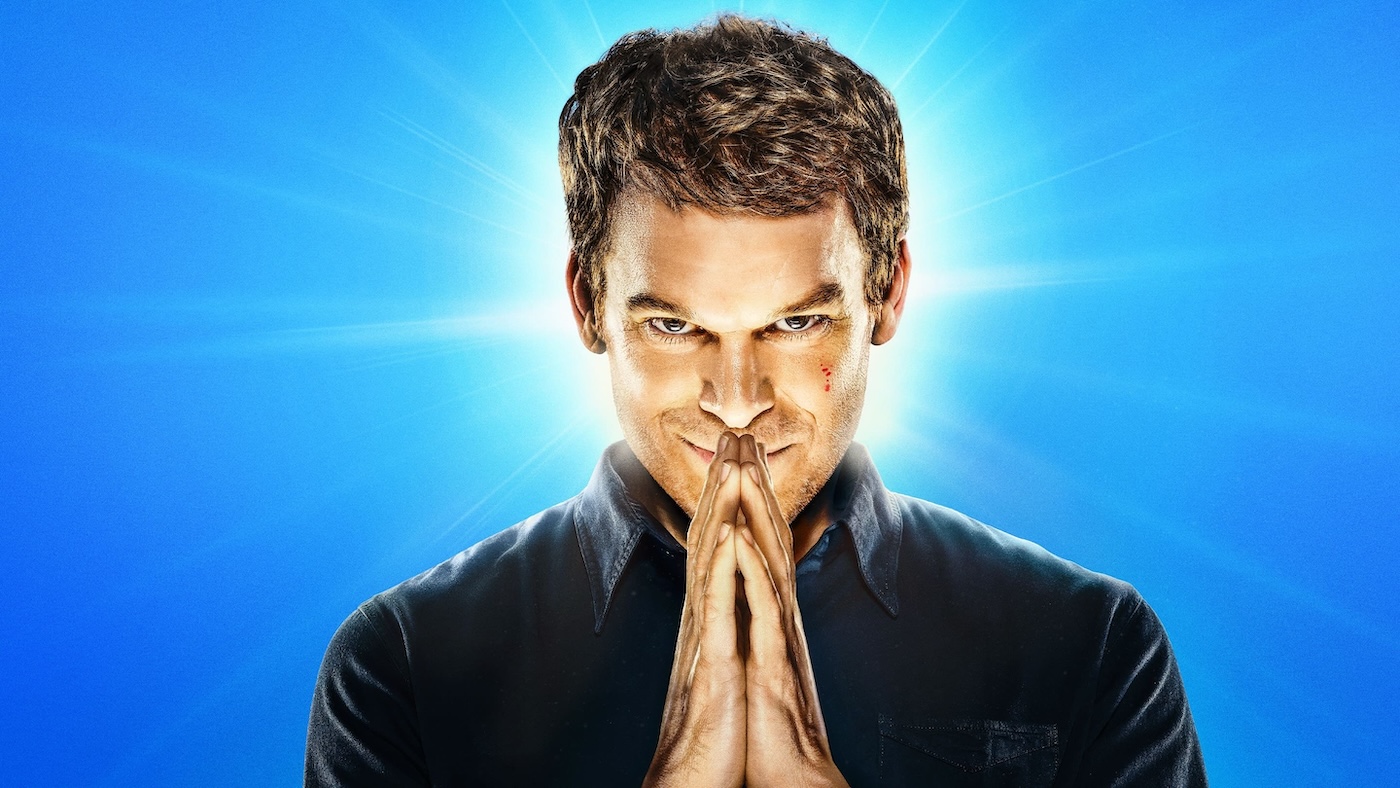
Dexter Morgan recovers from a near-fatal gunshot wound, then traces his missing son to New York City.

Showtime’s serial killer drama refuses to die. The door for a return was kept ajar after Dexter ended its eight-season run with a controversial finale in 2013, which left enough of a sour taste in fan’s mouths that it eventually returned as a miniseries, Dexter: New Blood (2021), intended to deliver a more satisfying farewell. Sadly, that ended almost as frustratingly, so star and producer Michael C. Hall was himself compelled to resurrect Dexter Morgan for a third attempt at getting the ending right. But we don’t seriously think anyone has any real desire to take this cash cow out to pasture, do we?
Dexter: Resurrection awkwardly undoes New Blood’s climax where —spoiler alert! — Dexter (Hall) was shot in the chest by his teenage son Harrison (John Alcott), at his own request, after his identity as Miami’s notorious ‘Bay Harbor Butcher’ was uncovered by his police chief girlfriend Angela Bishop, with his old cop buddy Ángel Batista (David Zayas) heading into town to arrest him. I can just about buy that the freezing cold temperature slowed Dex’s heart and the bullet missed vital organs, but there’s a lot of plot contortion in having Angela decide to renege on her accusations. And the actress doesn’t return to help smooth things over, so it’s all done using a letter’s exposition.
Nevertheless, Dex is left comatose but survives and is duly “resurrected” after months of physical therapy, with a suspicious Ángel waiting to interrogate his erstwhile colleague. Meanwhile, grief-stricken Harrison’s run off to New York City, where he’s found employment and normality as a hotel concierge, despite still beng haunted by his patricide. But that’s before he finds himself a murder suspect after he kills a would-be rapist and disposes of the body. It’s not long before Dex gives Ángel the slip, heads to NYC to reconnect with his son, finds useful employment as a rideshare driver, and along the way meets new victims for his famous plastic-wrapped tables in the City That Never Sleeps…

New Blood wasn’t terrible, but it mostly coasted by on the pleasure of seeing Dexter Morgan again after an eight-year absence. It was still beholden to how the original series chose to end things, having to put Dex in self-imposed exile with a new identity, abstaining from killing people, while quietly living in a snowy rural town. Even the fact he’s no longer part of law enforcement presented storytelling challenges, which is perhaps why they made his new lover a police chief.
In Resurrection, there’s a clearer opportunity to do something fresh and distinctive but closer to what the original show was about. Dexter regains his old name and is back in a bustling metropolis. There’s a clear motivation to make amends with his son (and help him evade prison), but also a lot of other threats simmering away in the background. From Ángel’s one-man crusade to bring his old friend to justice and a serial killer targeting rideshare drivers who’s been given Dexter’s preferred ‘Dark Passenger’ nickname by the tabloids, to the eventual big reveal in episode 4, “Call Me Red,” that a twisted billionaire named Leon Prater (Peter Dinklage) organises annual dinner parties for active serial killers.
The latter is a contentious element of Resurrection, but one that ultimately works. It’s an outlandish notion to have Dex mix with other “likeminded” folk and face a villain who reveres psychopaths and even has a secret vault full of serial killer memorabilia (both from the real-world and the Dexter universe). It’s the sort of wild idea one might expect from fan-fiction, and Resurrection is also stuffed with fan-pleasing cameos from past guest stars and old series Easter Eggs. You either embrace this heightened reality of where things have evolved to, or lament how far Dexter’s slipped from the relative seriousness of its first four seasons.
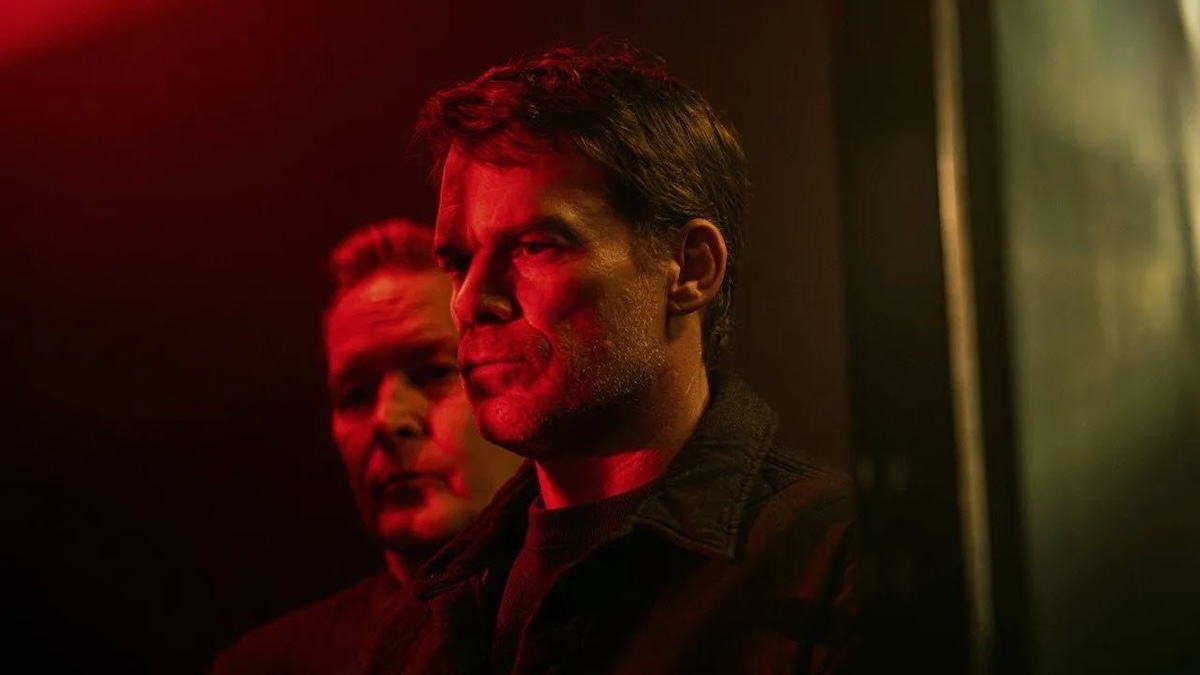
I’m not saying the show was ever an earnest examination of vigilantism and crime in modern-day America, but it was certainly more realistic than author Jeff Lindsay’s source material, whose novels embraced preposterous ideas like Dexter being possessed by a dark god called Moloch. The TV adaptation soon realised it was pulpy fun and leaned more into its darkly comic elements, but I’m not sure the original series would take things as far as Resurrection has.
Naturally, over time, Dexter’s producers have become more aware of the character’s position in popular culture and now have a desire to please such a loyal fan base. It’s the Freddy Krueger effect. And that’s become their priority, it seems, after so much backlash in trying to give the character closure. Or maybe all fiction about antiheroes eventually slips into a parodic tone. Resurrection is to Dexter what Hannibal was to Red Dragon; a more exaggerated and whimsical take on what was once intended as fairly grounded fiction. Heck, by virtue of his resurrection and the big city setting, this miniseries is effectively the Friday the 13th: Part VIII: Jason Takes Manhattan (1989) to the original run’s Friday the 13th (1980).
I did have concerns about “Call Me Red” when I first saw it, as there was a tug-of-war between my two competing reactions. It was clear Resurrection was embracing a slightly cartoonish tone, but it was also ridiculously entertaining to watch. How can you not enjoy seeing Dex go undercover as another lookalike serial killer, breaking bread with oddballs like Lowell ‘The Tattoo Collector’ (Neil Patrick Harris) who removes stalked women’s skin art; enigmatic goth Gareth ‘The Gemini Killer’ (David Dastmalchian); chubby family man Al (Eric Stonestreet) who removes the scalps and ponytails of his female victims as ‘Rapunzel’; and alluring Mia ‘Lady Vengeance’ LaPierre (Krysten Ritter), whom Dex is drawn to because she likewise seems to have an ethical code and only kills sexual predators? And on top of that there’s Peter Dinklage dressed as Blofeld, delighted to play host to a depraved menagerie of murderers. And Hollywood royalty Uma Thurman is basically his Oddjob!
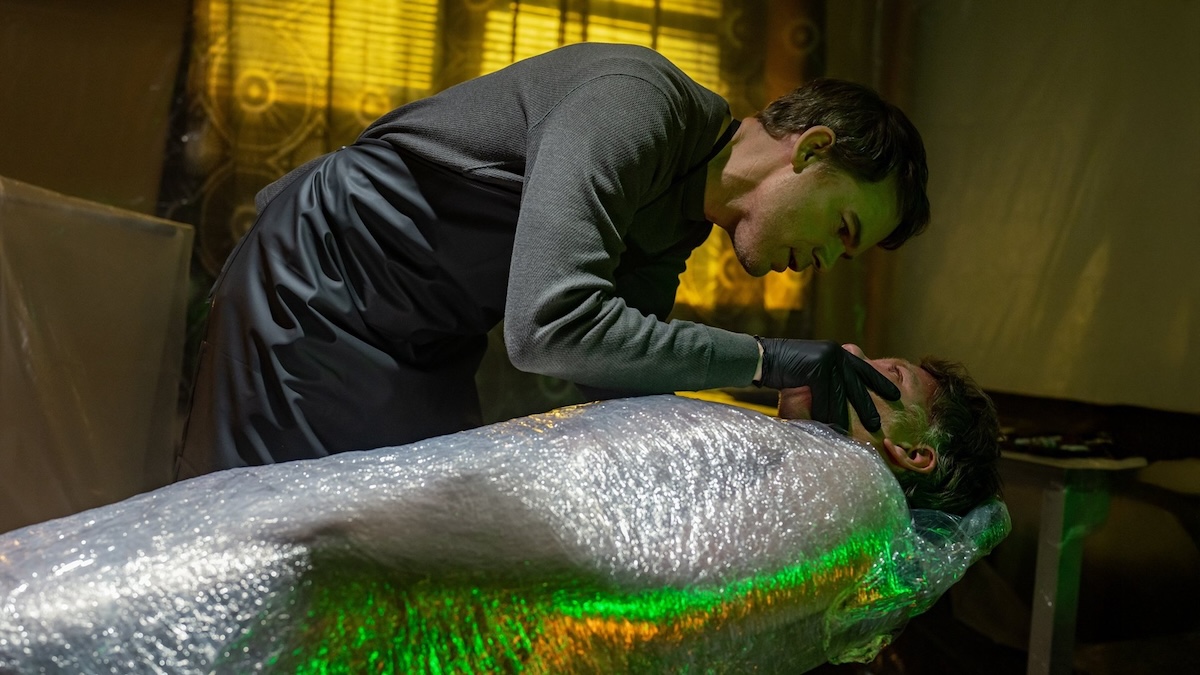
Another positive is something Dexter has always struggled with, as subplots not involving the eponymous character often feel tedious or you’re left hoping they connect to Dex’s core story. But here, the major B-plot of the homicide investigation into the murder Harrison committed, works incredibly well and is a foundational part of the first three episodes. Jack Alcott benefits from better writing as conflicted Harrison too, as we realise he isn’t on the exact same dark path as his vigilante father because he’s sickened by his impulses and regrets his actions.
Harrison’s early interactions with Ángel felt like he was being positioned as a rival “father figure”, who’s mentally better adjusted, and trying to ensure he doesn’t make the same mistakes as Dex and end up living a dangerous double life. The only downside of the Harrison plot is the inclusion of Detective Claudette Wallace (Kadia Saraf), who simply didn’t work as a character for me. She’s introduced as a quirky sleuth playing the Bee Gee’s “Staying Alive” while combing crime scenes, but Saraf doesn’t sit well in the part. She treats everything too seriously, like she’s the lead of a new CSI spin-off, and her character’s emotionless vibe is frequently a buzz-kill. I get the sense the writers wanted a genius sniffing around murder scene — someone able to make deductions nobody else can —but Saraf only succeeds in making Wallace feel annoying and the writing is two-dimensional. And she ends up being easily manipulated and outmanoeuvred anyway, so isn’t close to being the Sherlock to Dexter’s Moriarty, if that was the general intention.
There’s also not all that much left for Dexter to learn as a character after eight seasons and a miniseries, but Resurrection attempts something that has its moments. Dex befriends a rideshare driver called Blessing Kamara (Ntare Guma Mbaho Mwine), who becomes his landlord and effectively invites him into the bosom of his immigrant family. It’s a little silly how quickly becomes a “family friend”, although Blessing’s written as a ridiculously trusting and likeable everyman who wouldn’t suspect the worst in anyone. But even when there’s a serial killer sawing the heads off drivers, just as Dex comes to town?
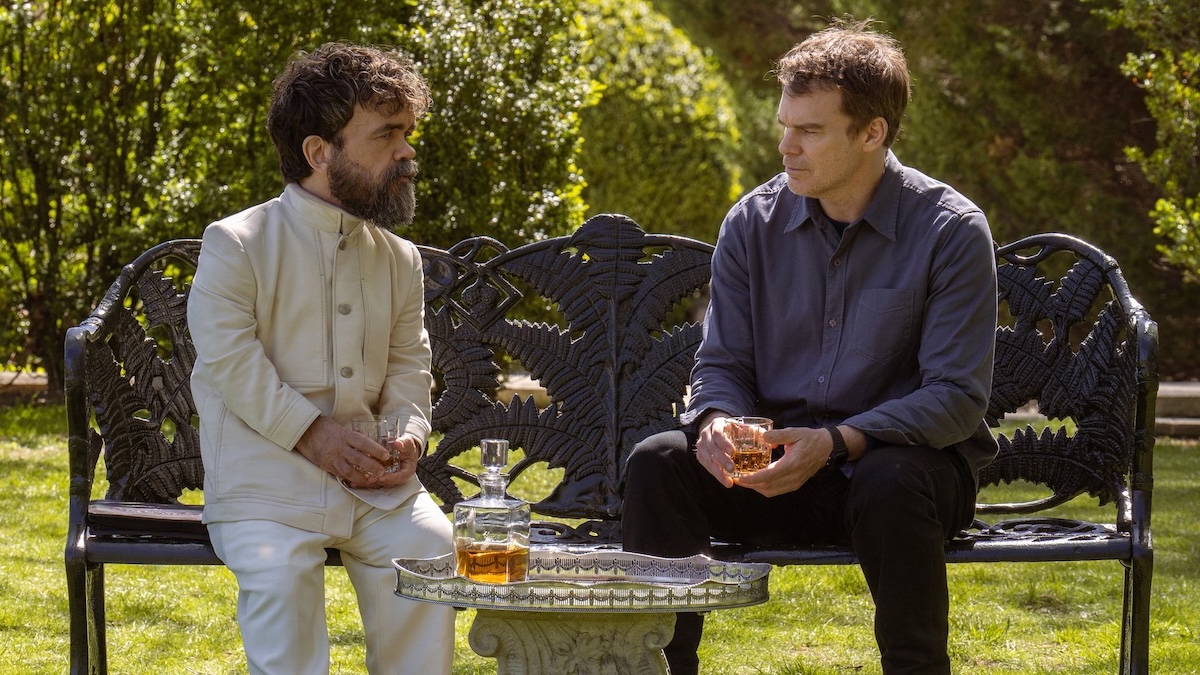
It takes some swallowing, but the point of the Blessing situation is for Dex to experience a normal family life, from a man we later learn has darker history too. He’s never had that, as his father Harry (James Remar) was a cop who literally taught him how to get away with murder, and his marriage to Rita was never open and trusting given his murderous proclivities outside of their relationship. And in reconnecting with Harrison, it makes sense for Dex to experience a functional family dynamic and, in Blessing, gets tips from a father who’s everything he isn’t. It’s fair to say Dex is considerably more “human” throughout Resurrection, perhaps as a result of his near-death experience and connection with Blessing and his extended family.
Dex even has more of an ego, as he’s driven to kill the Dark Passenger/Ronald Schmidt (Marc Menchaca) mainly because he dislikes the use of his own pet name for his “urges”, and takes pride in secretly being the notorious Bay Harbor Butcher amongst others killers—but with a hint of annoyance that everyone thinks he was caught long ago because he framed Sgt Doakes. Not to give anything away, but after one kill Dex even does a celebratory spin because a victim was top of the FBI’s Most Wanted list. Dex never before seemed pleased to take out prolific or famous killers, like Trinity (John Lithgow), to stroke his own ego. So iIt’s either down to Dex becoming more human and self-important, or the writers realising the character’s reached the near-mythic status of a Zodiac Killer, Ted Bundy, or Ed Gein, and Dex knows it too.
It’s a common complaint that seasons of Dexter often start well, but run out of steam halfway through. Most people were satisfied with New Blood right until the finale soured them on it, for instance, so it takes a while to grow confident that the writers have learned from their mistakes and have plotted an arc that justifies 10 episodes. It helps that Prater’s serial killer guest list serves Dex a smorgasbord of sickos to dispatch, and the obvious issue that it might be obvious the “new boy” is behind everything manages to be swerved fairly well. But on some level it’s a shame Resurrection introduced such a rich bounty of baddies for Dexter’s plastic-wrapped kill table, as a lot of characters who might have once anchored a whole season are gone within a few episodes. It doesn’t ruin the show, but Krysten Ritter and David Dastmalchian, in particular, feel like actors the show didn’t squeeze enough value from before the narrative’s forced to move on. But the upside is Resurrection has no downtime and moves with a fast pace.

Or maybe that’s a mixed blessing. The original series often found it difficult to give its regular cast much of interest to do, unless they were indirectly tied to Dexter’s storyline. I don’t think many people could even remember the various Ángel, Debra (Jennifer Carpenter), or Quinn (Desmond Harrington) subplots, as we’re naturally more curious in what Dexter and the villains are up to. Resurrection fixes that issue, as Michael C. Hall is the focus for the season, and everyone else is connected to Dexter’s story in some way — even if they don’t yet know it. The only outlier is Harrison having to deal with a murder investigation by himself, for a time, but that’s genuinely compelling in its own right.
However, this decision to put Dexter front-and-centre has its downsides, in that there’s no break from him as a pallet-cleanser. Or any clever ways to make a seemingly unconnected B-story tie into his A-story further down the line. It’s all fairly straightforward fare and we’re just here to see Dexter do his thing every week. Which is fine by me, but Resurrection certainly lacks the narrative variety the old show could (occasionally) make work to its benefit. As if to remedy the lack of subplots, it’s also interesting that the ghost of Harry is now written less like a phantom whispering nuggets of advice in Dexter’s ear, but plays more like a real person only Dexter can see and hear. My guess is James Remar only agreed to return if he’d get more to do, and while the change now makes Dexter look truly insane because it’s harder to see Harry as the mere personification of “thoughts”, it’s a fun evolution and their scenes together have more substance.
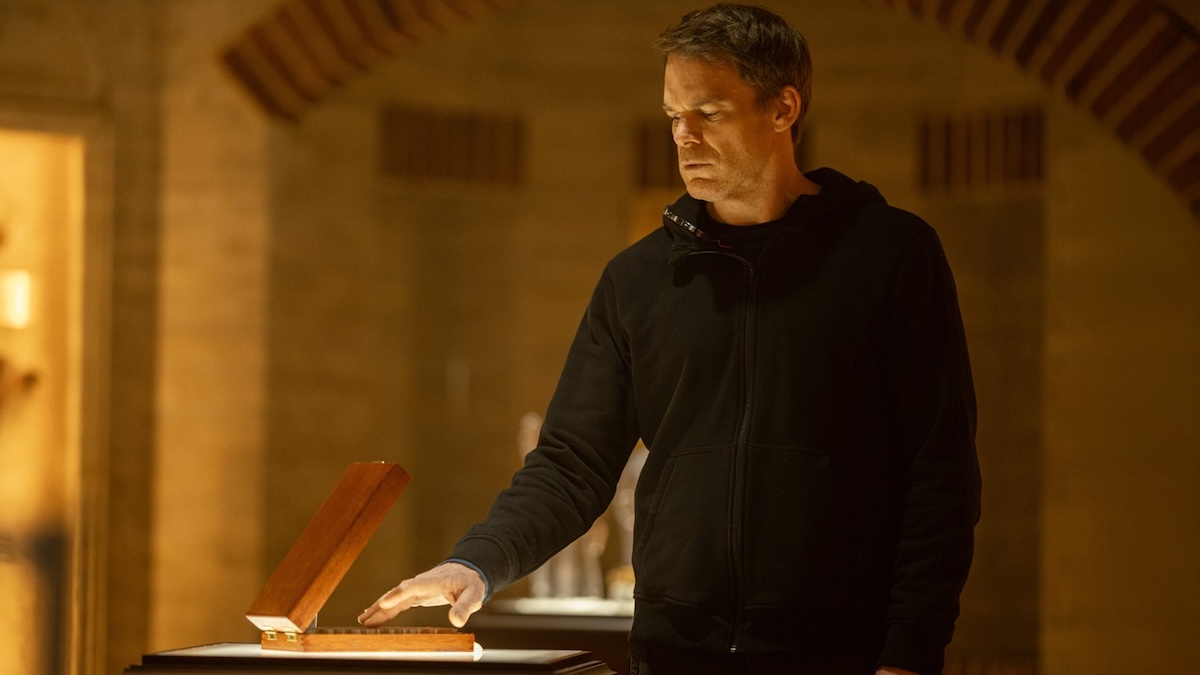
Without spoiling things, Resurrection ends in a satisfying way that ties everything up nicely, but without delivering any huge surprises. The writers likely felt determined not to leave fans on a downer for a third time, so the finale is effective but underwhelming upon reflection. It doesn’t even set up an exciting second season, beyond giving Dex a justifiable means to continue finding psychos without relying on the inside knowledge that came with being part of local law enforcement.
Still, it’s hard to disagree that Dexter: Resurrection marks a return to form. It’s comfortably the best season since 2009’s fourth with the Trinity Killer, and personally, I’d rate it the third best overall (behind the second, fourth, and first). Moving the action to New York City does rob the series of its famous tropical ambience —where Florida palm trees, the turquoise Atlantic, and neon-soaked nighttime streets were the perfect contrast to every grisly murder —and it’s a shame the late Daniel Licht’s fabulously dreamy music isn’t utilised more beyond the occasional motif. But Resurrection’s fast pace, tongue-in-cheek humour, eclectic mix of famous actors, and a gripping story means this revival goes down smoother than a knife through plastic. As some bizarrely fourth-wall-breaking dialogue says at the end, “I’m Dexter Morgan. I’m exactly who I need to be. Exactly who you… want me to be.” And that’s fine by me.
USA | 2025 | 10 EPISODES | 16:9 HD | COLOUR | ENGLISH

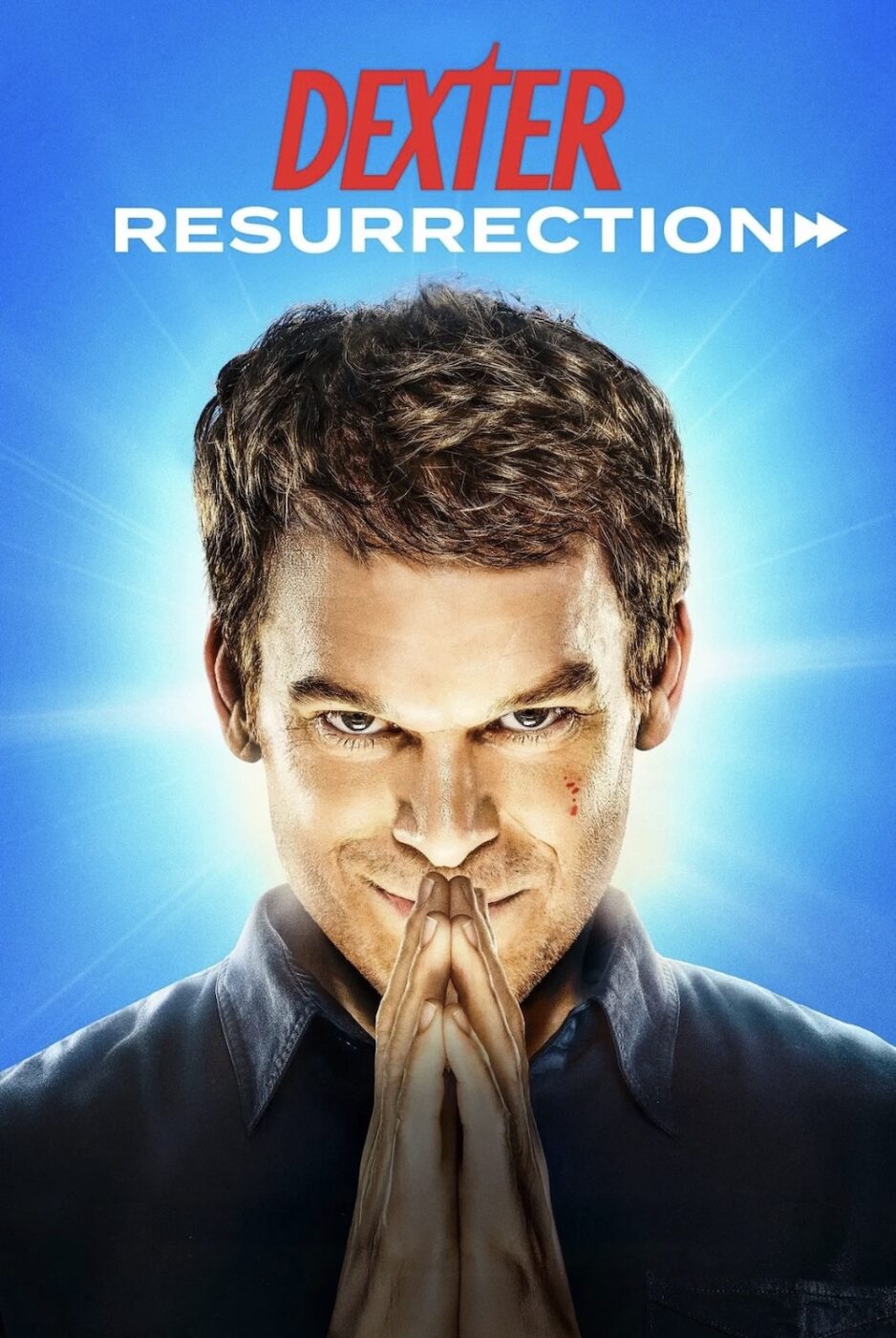
writers: Clyde Phillips, Scott Reynolds, Scott Buck, Nick Zayas, Alexandra Franklin, Marc Muszynski, Katrina Mathewson, Tanner Bean, Kirsa Rein, Hilly Hicks Jr., Edith Rodriguez, Tony Saltzman, Dane Anderson & Matt Venne.
directors: Marcos Siega & Monica Raymund.
starring: Michael C. Hall, Peter Dinklage, Uma Thurman, David Zayas, Jack Alcott, Ntare Guma Mbaho Mwine, Kadia Saraf, Dominic Fumusa, Emilia Suárez, James Remar, Krysten Ritter, Neil Patrick Harris, David Dastmalchian & Eric Stonestreet.
